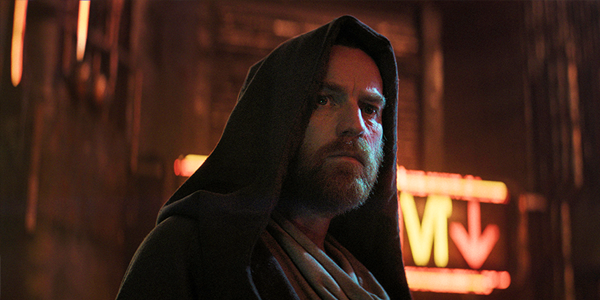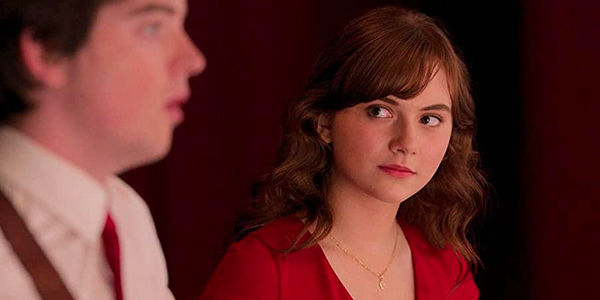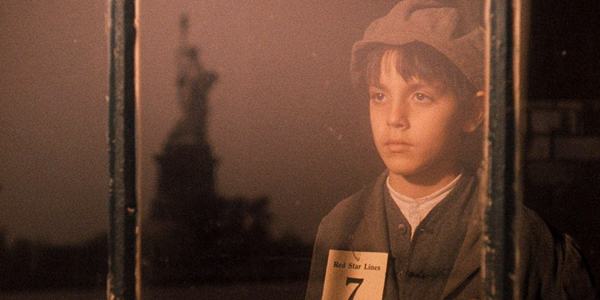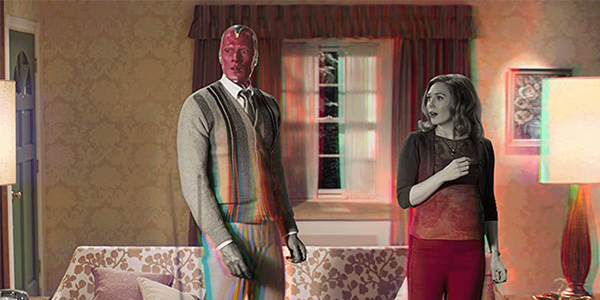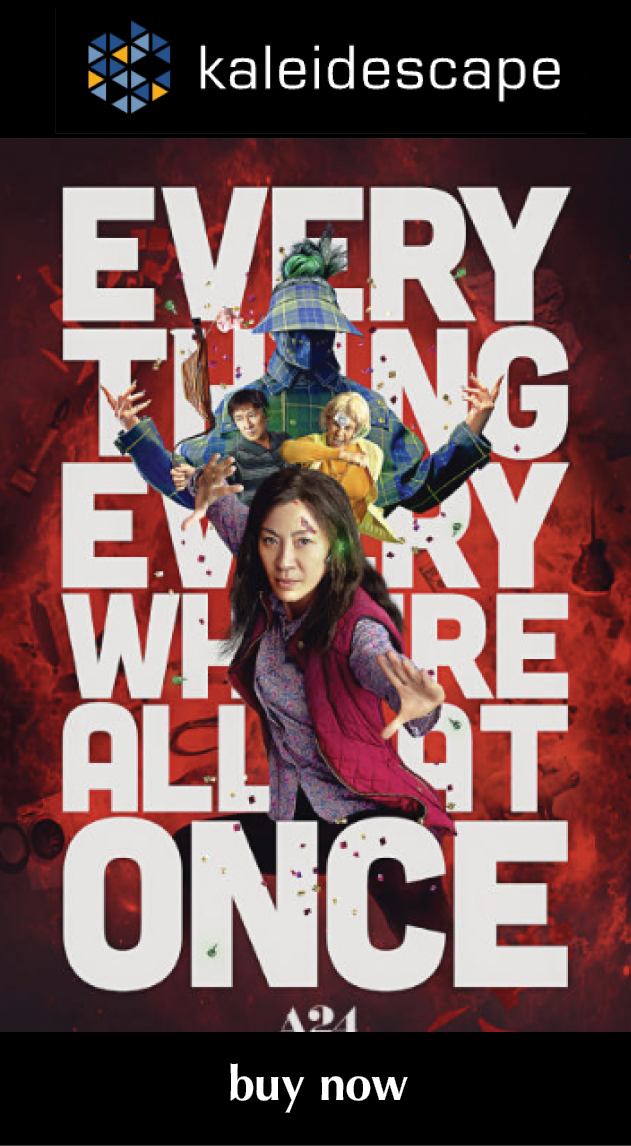recent reviews
Sign up for our monthly newsletter
to stay up to date on Cineluxe
Both zany and thought-provoking, this Michelle Yeoh vehicle somehow manages to be about everything, everywhere without taking on too much
by Dennis Burger
June 16, 2022
Perhaps the most troubling thing about modern popular culture—especially as it pertains to genre fiction—is that metaphors have lost all meaning. Our totems have lost their functional connections with the things they’re supposed to symbolize and have taken on disproportionate importance on their own. The trappings have come to be the entire point.
Fantasy fiction isn’t about where we’ve come from and what we’ve lost along the way—not anymore, anyway. It’s about dragons and hot chicks with pointy ears in impractical armor. Star Wars as a franchise isn’t about emergence into adulthood and a postmodernist twist on early Jungian notions of the father complex anymore, nor is it a thinly veiled critique of American imperialism, as it once was; it’s about laser-swords and space wizards and big walking weapons of war. And when it tries to be anything more than that, the loudest but least significant contingent of its fanbase makes headlines with their toxicity.
The seasoning has become our substance, the dessert our main course, and we’re paying a price for that, culturally speaking. And I say that as someone who really, really likes dessert.
If you want to understand anything about Everything Everywhere All at Once before diving in, it’s that it seems to be an outright rejection of all of the above. To point that out does run the risk of painting the film in a misleading light because it unfairly places it within the tradition of genre fiction. And when you get right down to it, Everything Everywhere doesn’t really belong to any particular genre—or so I thought on my first of four viewings in the span of 24 hours.
Sometime during my second viewing, I decided it’s actually a mashup of every genre—although mashup isn’t quite the word I’m looking for, as it connotes a sort of haphazard cribbing of the most superficially popular aspect of genres like science-fiction, fantasy, kung-fu, comedy, surrealism, drama, wuxia, and absurdism, with no real attempt at meaningful synthesis. Instead, writer/directors Daniel Kwan and Daniel Scheinert, collectively known as “Daniels,” seem far more interested in borrowing the most resonant and meaningful aspects of these genres and assembling them into a new whole such that each distinctive element reinforces the other on some deeper level.
But none of that really matters, because in my third viewing I realized that to really understand it, you have to come to terms with the fact that it is every genre and no genre simultaneously. There’s never been a film like it and there never will be again, because any imitation would sully the intent.
Of course, that’s not to say no one will try. I imagine we’ll see all sorts of lazy attempts at putting Camus, Douglas Hofstadter, Kafka, Daniel Dennet, the Shaw Brothers, and the Wachowskis (before their work became self-parody) into a big boiling pot and stirring it all with a Grant Morrison-shaped ladle with a Salvador Dali-inspired handle. But ultimately, any such attempt at imitation will be derivative, and derivative is certainly the one thing Everything Everywhere is not, despite the numerous traditions from which it borrows.
Here is perhaps the weirdest thing about the film, though: Despite being a work of legitimate cultural significance, with a message that will still be sending shockwaves through my brain years from now, it is also incredibly accessible and wildly entertaining, not to mention slap-happily zany.
Superficially, it’s a story about a Chinese-American laundromat owner (Michelle Yeoh) who’s unknowingly on the verge of being served divorce papers by her husband (Ke Huy Quan, aka Short Round from Indiana Jones and the Temple of Doom) and who has nearly alienated her daughter (The Marvelous Mrs. Maisel’s Stephanie Hsu) past the point of reconciliation.
During an IRS audit, she gets dragged into an adventure in which the fates of all realities are imperiled and she is the key to saving them all—including alternate universes in which she is a boulder, in which she is sort of Michelle Yeoh, in which humans evolved useless sausage appendages instead of fingers, and in which Randy Newman did the music for Ratatouille and also voiced Remy (except in this case Remy is an animatronic racoon and not a CGI rat), to name just a few.
It’s easy to read all that and think you know exactly what sort of film this is. Whatever you’re imagining, you’re wrong. This is not the Hero’s Journey, it’s not The Matrix or the MCU, and it’s not quite the film being sold by the trailer, either.
My first viewing, I thought I had settled on an interpretation of the story as sort of grappling with the anxiety of living in the modern world, where we all feel stretched too thin and are all simply cogs in the machine of bureaucracy, with no real agency. The second time around, it struck me more as a meditation on libertarian free will, and a question about whether different lived experiences would fundamentally change who we are as individuals.
The third time through, it seemed obvious the film is a juxtaposition of a mother and daughter, both at turning points in their lives. One has to contend with the near-limitless and crippling well of possibilities her life could be; the other is forced to reflect on all the choices she could have made but didn’t and contend with what could have been. And the more I think about it, the more I realize the film is all of those things and more. It kinda is about everything, everywhere, all at once.
It if isn’t clear by now, this one is a keeper, so in one sense I’m glad I have it on Kaleidescape. It’s a distinctively weird-looking film, captured as it was in the ArriRaw format in a mix of 2.8K and 3.4K resolutions and finished in a 4K intermediate, but perhaps more importantly shot through a variety of idiosyncratic lenses, including vintage Todd-AO anamorphics.
It’s not the sort of so-razor-sharp-I-can-see-every-pore perfection that delights enthusiasts, but it’s such a deliciously textural, colorful, and high-contrast image that you’ll still want to watch it on the best screen in the house. Kaleidescape’s UHD HDR10 image is practically indistinguishable from the iTunes version (viewed via the Apple TV+ app on a Roku Ultra), aside from the first few frames of the A24 logo while the stream is buffering up to full resolution. But that’s not a knock against Kaleidescape, because there’s simply no room for improvement over Apple’s encoding of the film, no matter how many extra bits you throw at it. Both are A+ presentations.
You may be wondering why I purchased the film on iTunes if I already had it on Kaleidescape. It wasn’t purely for the sake of visual comparison. The one thing iTunes has over any other provider in the digital domain is the audio commentary by Daniels, which I couldn’t resist listening to in my fourth viewing. Thankfully it doesn’t impose too much in terms of interpretation, instead digging into anecdotes about the production and post-production, including the fact that the incredible visual effects (500-ish shots in total) were created by a team of five who learned how to do effects by watching After Effects tutorials online.
It’s a real shame Kaleidescape wasn’t given access to the commentary, because the home video release isn’t a complete package without it. To be fair, though, Kaleidescape does have the full-bandwidth Dolby TrueHD version of the Atmos soundtrack, which is as perfect a blend of the sublime and the ridiculous as everything else about Everything Everywhere. Seriously, your subwoofers will need smelling salts after the closing credits roll, but it isn’t about spectacle or high-impact sound purely for the sake of high-impact sound; it’s about tying the whole chaotic and meditative audiovisual and narrative experience together into one mind-blowing whole.
Dennis Burger is an avid Star Wars scholar, Tolkien fanatic, and Corvette enthusiast who somehow also manages to find time for technological passions including high-end audio, home automation, and video gaming. He lives in the armpit of Alabama with his wife Bethany and their four-legged child Bruno, a 75-pound American Staffordshire Terrier who thinks he’s a Pomeranian.
PICTURE | It doesn’t offer the so-razor-sharp-I-can-see-every-pore perfection that delights enthusiasts but the image is so deliciously textural, colorful, and high-contrast that you’ll still want to watch this movie on the best screen in the house
SOUND | The Atmos soundtrack is a perfect a blend of the sublime and the ridiculous that will have you giving your subwoofers smelling salts after the closing credits roll
© 2023 Cineluxe LLC



